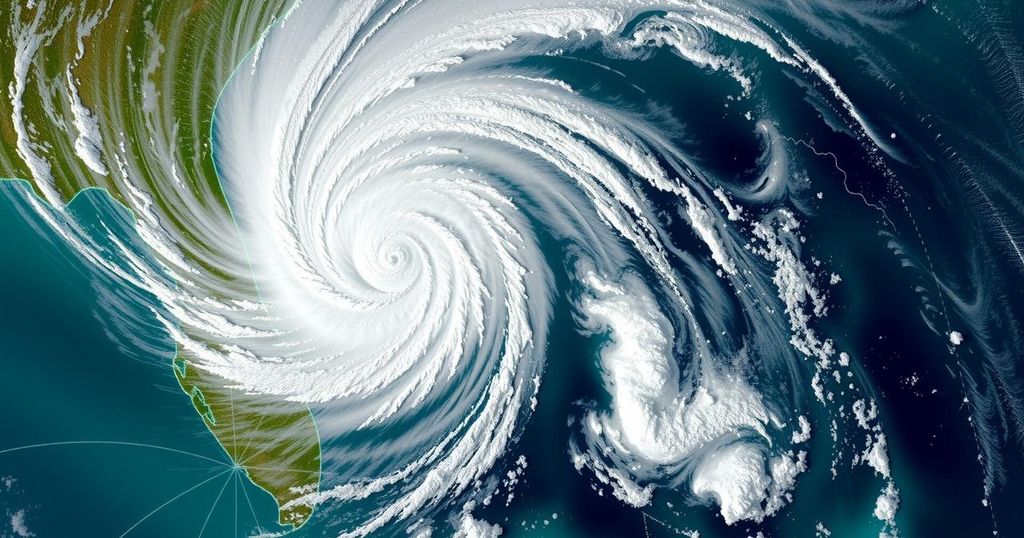Tropical Cyclone Chido’s Catastrophic Impact on Mayotte: A Brief Overview

Tropical Cyclone Chido, a Category 4 storm, struck Mayotte on December 14, 2024, causing at least 22 deaths and injuring approximately 1,500. With winds reaching 225 km/h, it has been the strongest storm in 90 years, damaging crucial infrastructure and affecting a population already living in precarious conditions.
On December 5, 2024, Tropical Depression Chido formed in the southeast Indian Ocean, progressing westward and escalating into a moderate tropical storm by December 9, with sustained winds of 70 km/h. It peaked as a Category 4 cyclone, reaching wind speeds of 250 km/h before making landfall in Mayotte on December 14, where it caused tremendous destruction with winds up to 225 km/h. As of December 18, the cyclone had resulted in at least 22 fatalities and approximately 1,500 injuries, a figure that may increase as many individuals remain unaccounted for.
This storm ranks as Mayotte’s most powerful cyclone in over nine decades and wreaked havoc on crucial infrastructure, including hospitals, the airport, and road networks, while also disrupting the supply of electricity, water, and telecommunications. The situation is exacerbated by the fact that nearly 40% of Mayotte’s housing was already unstable prior to the cyclone, impacting around 100,000 individuals, equivalent to one-third of the island’s estimated population of 320,000. Reports suggest that the actual population may include up to 200,000 additional individuals, primarily migrants from Comoros.
Tropical Cyclone Chido emerged as one of the most significant storms to affect Mayotte in recent history, with its origins tracing back to a tropical depression that formed in early December. The Saffir-Simpson scale categorizes it as a Category 4 cyclone due to its peak wind speed, demonstrating the severity of its impact. The cyclone has not only led to casualties and injuries but has also caused substantial infrastructural damage that poses long-term challenges for recovery efforts.
In conclusion, Tropical Cyclone Chido represents an unprecedented natural disaster for Mayotte, highlighting vulnerabilities in housing and infrastructure that existed prior to the cyclone’s arrival. With ongoing recovery efforts, the government and humanitarian agencies must prioritize the rescue operations and long-term rebuilding strategies to support the affected population effectively. As reports continue to surface, it is vital to assess the full extent of the damage and respond accordingly to this catastrophic event.
Original Source: reliefweb.int








